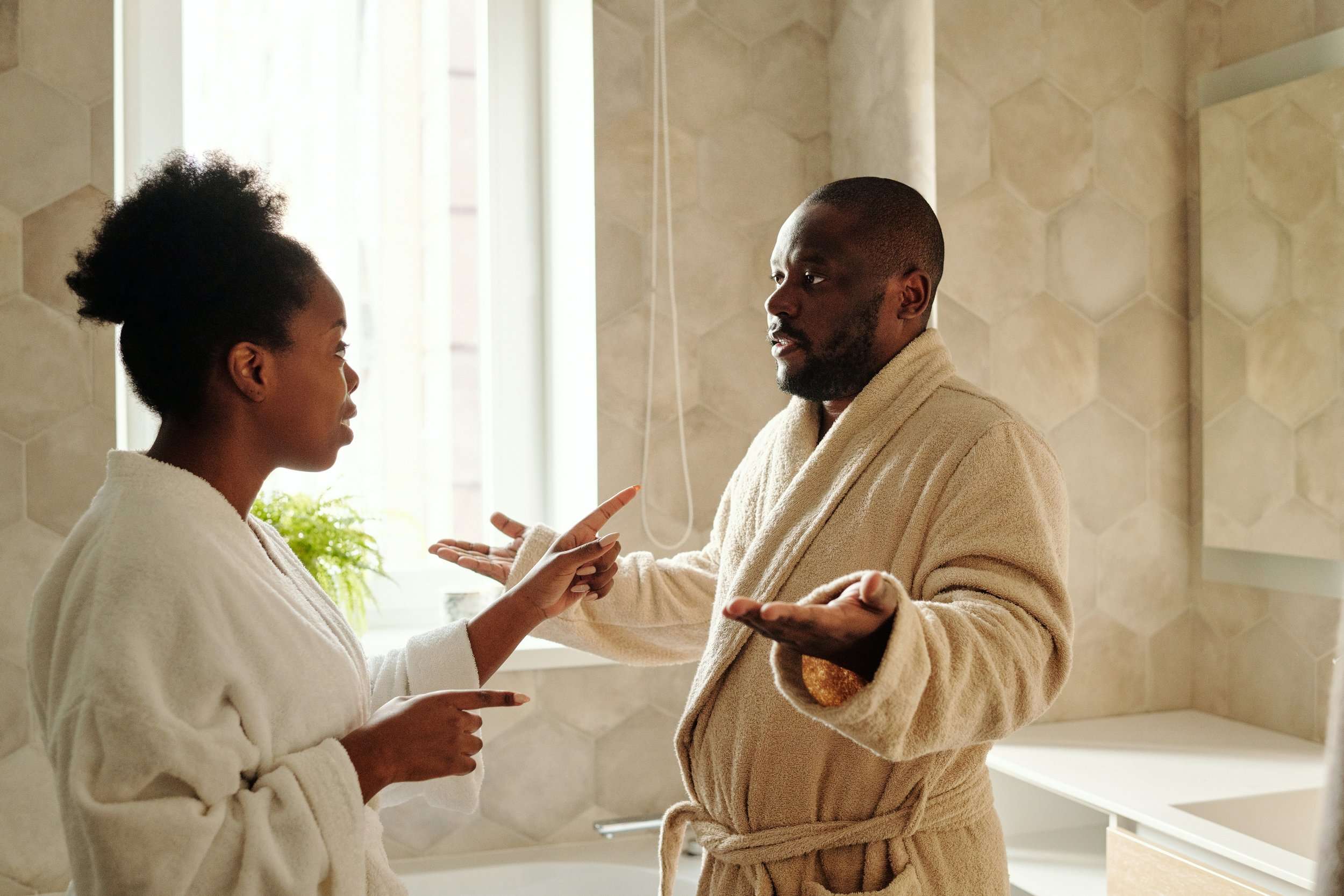Growing up in the church, I heard a lot about being equally yoked, but I never understood what it meant, especially regarding pursuing a loving relationship! This article will:
1. Introduce the concept of being equally yoked and its origin in the Bible
2. Discuss how unequally yoked relationships can cause tension and disagreements, leading to their downfall
3. Explore practical implications of being equally yoked in a relationship
4. Examine ways to establish if you are genuinely compatible with your partner before committing further to the relationship
5. Conclude with an overview of what it means to be equally yoked and why it is crucial when dating
The concept of being equally yoked and its origin in the Bible
Being equally yoked is vital for couples looking to build lasting relationships. The phrase ‘equally yoked’ originates from the Bible and has been used by Christians and other religions to refer to two people in a relationship that share similar beliefs, values, and goals. The phrase ‘equally yoked’ comes from 2 Corinthians 6:14, which states, “Do not be unequally yoked with unbelievers.”
What is a yoke?

Above we see a bow yoke bound to the necks of a pair of oxen. The Bible passage is often interpreted to mean that couples should not pair up if they have different religious beliefs. However, when you see what a yoke is, you may understand that it is not only limited to religion but refers to all aspects of life.
Farmers would use a yoke to harness two animals together to do a task they could not handle alone. The task’s success, however, depended on how compatible the two animals were with each other. Hence, you would not place two different animals on a yoke together because of their differences in internal temperaments, energy levels, external structure, and size.
For instance, if you put an ox and a donkey together, the ox would not tolerate the smell and breath of a donkey. Hence the work would not be completed, even if the animal’s strength and energy levels were similar.
Furthermore, two dissimilar animals would pull differently, causing them to head in different directions. The yoke, meant to help, would become an irritation or hindrance to each animal instead of a help. Any animal combination led to confusion and discord. Moreover, if one animal was bigger, stronger, or faster, the other could not physically keep up. Over time, the bigger, stronger, or faster animal would potentially break the neck or the legs of the slower animal.
What is the importance of being equally yoked?
When forming a lasting bond with someone, being equally yoked is imperative for a successful relationship. This means that those involved in the relationship should have similar values, beliefs, and outlooks on life. When both partners share these commonalities, they are more likely to be compatible and get along better than unequally yoked couples.
1. Less major lifestyle disagreements
A couple can work through the small issues when they agree on the big issues. Two individuals with similar values and beliefs will see eye-to-eye on various topics, reducing conflict in the long run. Additionally, since both partners understand each other’s perspectives, their discussions will be far less heated, positively affecting their communication skills.
2. Major decisions become easier
Being equally yoked makes decision-making much easier for couples since they tend to agree on most matters due to their shared beliefs or outlooks on life. This benefits couples when making critical decisions, such as where they will live, buying a house, whether they should have children, their roles within the relationship, etc.
3. Comfort & support in tough times
Being equally yoked allows a couple to find comfort and acceptance within each other during tough times due to their shared understanding of one another’s feelings and emotions. Equally yoked couples typically form strong emotional connections with one another, which allows them to be more supportive of each other during difficult circumstances – something unequally yoked couples may struggle with due to differences in values or outlooks on life.
4. Agreements on lifestyle choices
From porn to abortions, equally yoked relationships provide an atmosphere where couples agree or can find a place of agreement on lifestyle choices. Although porn and abortions are broader choices, when couples agree on a lifestyle, they will likely enjoy activities and hobbies together since both parties find pleasure from similar interests.
From playing sports together or attending music concerts as a couple, equally yoked individuals share many opportunities for entertainment since they understand what brings enjoyment and what is off limits due to sharing common ground.
5. Look beyond themselves during disagreements
A principal element of being equally yoked is the ability to turn and trust God as the ultimate authority in your life. Sometimes, a couple disagrees regardless, leaving two options: they can trust in their self-righteousness or turn to God and scripture as the ultimate authority. When you both believe in and trust God, you can step outside of yourself and your opinions and obey whatever God says is true and accurate—relieving both of you from being right or wrong.
Why does it matter if a couple is not equally yoked?
Being unequally yoked occurs when two people come together but have different beliefs, views, or values on certain aspects of life. Sure, marrying your rebel boyfriend is a fantastic idea at first, or settling with the guy your friends or family do not like is also fun, but both are only delightful FOR A SEASON.
Here Is Why…
Ever notice that you tend to become your parents as you get older? Your decisions and what you say and do align with who your parents are or were.
Ultimately—every action is governed by values—whether those we have chosen or implicitly absorbed from our family and friends. Our values are shaped by multiple factors: what we inherit, where we habitually put our attention, what actions we choose, and the perceptual sensitivities and capacities we develop from our upbringing. All these shape our values and character. As a result, they are always in the back of our minds.
Hence, for a season, that person is great until your values around family, children, holidays, money, the list goes on start to unfold and you start to have major disagreements.
At first, the couple may not think about these things or believe they can easily overcome them. However, the value rub will cause disagreements and tension within the relationship, potentially leading to its downfall.
For example, suppose two people in a relationship hold vastly different views on how to spend their Sundays. Of course, initially, this could be a nuisance but not a crisis. However, what happens when the couple is five years in and one person is no longer consciously going against their values? What happens when they have children? Typically, the couple will start to have arguments, which will get bigger because there is a value rub.
In this scenario, if we think about Sundays, what we see is a partner’s interests, activities, or habits are now a source of disagreement for the other partner. In some cases, one partner might feel neglected if they are not included (even if it’s by their choosing) in activities or hobbies that their partner enjoys.
This feeling of exclusion will cause a strain on the relationship as one partner begins to feel disconnected from the other due to their different interests. As such, unequally yoked couples may find it difficult to partake in activities together which could strain communication between them even further.
Although for the sake of discussion, I utilized attending church on Sunday; however, it does not start and stop there. The same holds true for all major life decisions. In these cases, heated arguments arise over anything from spending habits to how the household should be run, how the other person should spend their free time, and which political party is best for the country.
Religion often serves as a robust foundation for many individuals’ values and beliefs about life. Once the individuals start operating per their values, a couple may begin constantly disagreeing about little and big things.
Unequally yoked couples with differing religions can experience an even deeper divide as they move from discussing topics to living out and acting on those topics, i.e., marriage ceremonies, child-rearing practices, and values to instill in your children can all eventually lead to conflicts that can spell doom for the relationship altogether.
How can I determine if we are equally yoked?

Every relationship has its unique dynamics and traits, which are determined by the compatibility of each partner. While there is no surefire way to guarantee that a couple will be able to maintain a healthy and successful relationship, it is crucial to consider the level of compatibility between two people before committing further to a relationship.
Establishing if you are genuinely compatible with your partner requires an honest assessment of both individuals’ values, goals, and interests in order for couples to not only identify any potential issues but also cultivate a stronger connection with one another that can serve as a foundation for their future together.
It is crucial for couples who wish to stay together long-term to ensure that they are compatible with one another across all areas of their life; here are a few major areas to ponder:
Communication– how couples feel about the quality and quantity of communication in their relationship. Do you feel heard and understood when talking?
Conflict Resolution– a couple’s ability to discuss and resolve differences.
Partner Style & Habits– satisfaction with their partner’s personal characteristics and habits.
Financial Management– realistic financial plans and agreements around spending habits, savings, debt, and large financial decisions.
Leisure Activities– the amount of leisure time you want to spend together. Are there natural similarities in interests?
Sexual Expectations– are you all comfortable discussing sexual issues, expectations, and the history of your sex lives?
Family & Friends– do you like and enjoy each other’s family and friends?
Relationship Roles– what are the expectations about how decision-making and responsibilities will be shared?
Spiritual Beliefs– how satisfied or involved are you all with your practice and expression of spiritual beliefs? What are the similarities, and are they a resource or a source of tension?
Marriage Expectations– how realistic or unrealistic are you all about love and marriage? Do you both want to get married? How long do you want to wait?
Having Children– what are your feelings and expectations about roles, support networks, and who will care for the baby?
Parenting Expectations– what is the plan for discipline and parenting responsibilities?
Cohabitation– will you live together before marriage, and how will this impact your relationship?
Previous Marriages– are there previous relationships that will interfere with the health and happiness of your future together?
Step Parenting– what is the plan for being a stepparent? How will you handle discipline and sharing parenting responsibilities?
Health– what are the challenges around you both maintaining a healthy and active life together?
Cultural/ Ethnic Differences– are there differences in your ethnic or cultural background negatively affecting the relationship?
Forgiveness– can you both forgive after a conflict, betrayal, or hurt?
It is essential for couples interested in being equally yoked to openly discuss these topics with one another before making any long-term commitments together so they can build trust and understanding with each other.
Moreover, both partners must be honest in expressing their feelings towards each other regarding any potential disagreements during this process to anticipate arguments or conflicts that may arise down the line due to incompatible values or outlooks on life.
Conclusion
Unequally yoked relationships are often doomed from the start due to disagreements arising due to differences in beliefs or outlooks on life. Therefore, individuals who wish to pursue long-term relationships with someone else must establish whether they share similar values and interests that would make them equally compatible with each other before committing further to a partnership or marriage.
Ultimately, if you want your relationship to last for years to come, take some time to evaluate whether or not you are truly compatible with your partner before committing. With this knowledge in mind, I hope you can find someone who meets your expectations while still being equally yoked!
















